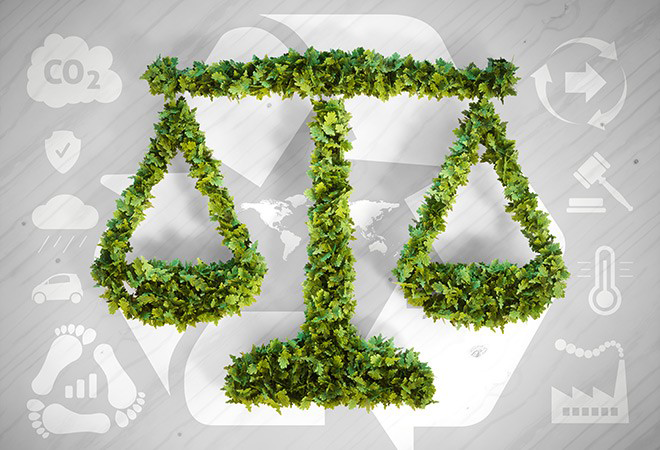NAIROBI,Kenya – The proposed Finance Bill 2024 marks a significant shift in Kenya’s fiscal policy, introducing several changes that could have profound implications for climate change and environmental initiatives. As the country grapples with the escalating climate crisis, its policy decisions will play a crucial role in shaping its environmental future.
One of the most impactful changes proposed in the Finance Bill is the restriction of VAT exemptions on specialised equipment for developing and generating solar and wind energy. Previously, these exemptions were available to promote investment in renewable energy.
However, the new Bill limits these benefits only to projects already under development. This change could lead to increased costs for new renewable energy projects, potentially discouraging future investments in this critical sector. Given Kenya’s vast potential for solar and wind energy, this policy shift may slow down the country’s progress toward achieving its renewable energy targets and reducing its carbon footprint.
Additionally, the Bill introduces a new withholding tax on interest earned from bonds, notes, or similar securities issued to raise funds for infrastructure and other social services. This includes green bonds, which have been pivotal in financing climate-friendly projects. The proposed tax rates are 5% for resident persons and 15% for non-resident persons.
By taxing green bonds, the Bill could make it more expensive to finance environmental projects, potentially reducing the attractiveness of investing in green infrastructure. This move seems counterintuitive at a time when incentivising investments in sustainable projects is crucial in combating climate change.
Introducing an Eco Levy on certain goods negatively impacting the environment is a step in the right direction. This levy targets products like technology items and plastic packaging, which contribute significantly to pollution and environmental degradation. By imposing this levy, the government aims to reduce the consumption of environmentally harmful products and encourage more sustainable alternatives. This policy could drive behavioural change among consumers and businesses, fostering an eco-friendly economy.
However, the Eco Levy brings with it a set of challenges. While it aligns with the polluter-pays principle which asserts that those causing environmental damage should bear the costs of managing it—the practical implications are complex. Manufacturers and importers are likely to pass on the additional costs to consumers, resulting in higher prices for goods.
This could disproportionately affect lower-income individuals who are already struggling with the cost of living. While the intent is to promote environmental responsibility, there is a risk that it could punish consumers and potentially cripple vital industries that rely on the affected products.
Striking a balance between environmental responsibility and economic reality is key to ensuring a sustainable future. The government must carefully consider how to implement the Eco Levy in a way that does not unduly burden consumers or stifle economic growth. For instance, it could provide subsidies or incentives for businesses that adopt greener practices or invest in sustainable technologies. This would help mitigate the financial impact on consumers while still promoting environmental goals.
Another concern is the lack of clarity on where the funds collected from the Eco Levy will be deposited and how they will be used. Transparency in the allocation and utilization of these funds is crucial to ensure that they are genuinely used to address environmental issues rather than falling into the hands of corrupt officials. If the funds are not effectively utilised for environmental protection, the levy could lose its intended purpose and erode public trust.
The proposed motor vehicle tax also raises significant concerns. By basing the tax on the vehicle’s value rather than its emissions, the policy could inadvertently encourage the use of older, fuel-guzzling cars with lower valuations, rather than newer, more fuel-efficient vehicles.
Additionally, imposing VAT on electric bicycles and buses, as well as excise duty on electric motorcycles seems counterproductive to promoting e-mobility.These measures suggest that the tax is more about revenue generation than environmental protection, which calls into question the government’s commitment to sustainability.
Lastly, the impact of the Eco Levy on the battery manufacturing industry is a crucial aspect that warrants careful consideration. If the Eco Levy results in higher costs for batteries, it would not only affect manufacturers directly but could also have broader ramifications, potentially leading to increased prices for consumers. Additionally, the industry’s consequent collapse would have great repercussions for the workforce as it is a significant source of employment for many citizens.
At the moment, Kenya stands at a crossroads.The proposed Bill presents a pivotal moment for Kenya’s environmental and economic future. While the proposed Eco Levy and other measures aim to promote environmental responsibility and align with the polluter-pays principle, the practical implementation must be carefully managed to avoid unintended economic repercussions.
Transparency in fund allocation, balanced taxation policies, and targeted incentives for green technologies are essential to ensure the Bill supports sustainable development without overburdening consumers or stifling innovation.
By finding this balance, Kenya can chart a course towards a greener, more sustainable future, demonstrating its commitment to environmental stewardship while fostering economic resilience. The decisions made now will shape the nation’s ability to combat climate change and secure a prosperous, sustainable future for all its citizens.
The writer Christine Wainaina, is a Climate Action Advocate and a Lawyer working at ICJ Kenya. This article was first published on the People Daily Newspaper.







